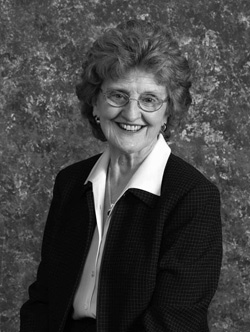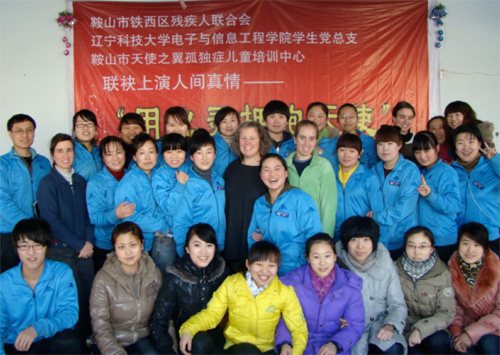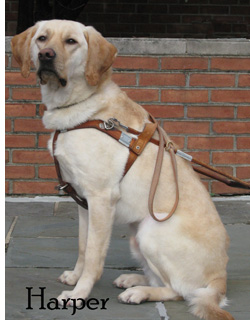by Crystal Ward
 I am so pleased to introduce Andrea Knudsen as a guest blogger today. Andrea’s son receives services here at Easter Seals DuPage and the Fox Valley Region, and she wrote this wonderful tribute to our retiring president and chief executive officer Mary Alice D’Arcy.
I am so pleased to introduce Andrea Knudsen as a guest blogger today. Andrea’s son receives services here at Easter Seals DuPage and the Fox Valley Region, and she wrote this wonderful tribute to our retiring president and chief executive officer Mary Alice D’Arcy.
Retiring Easter Seals CEO leaves a lasting legacy
By Andrea Knudsen
Mary Alice D’Arcy, the president and CEO of Easter Seals DuPage and the Fox Valley Region, was quoted in a Daily Herald story last week about her upcoming retirement, and her words explain why families here in the DuPage and Fox Valley region love her — and will miss her — so much.
“We are a tiny slice of our families’ lives and yet we are their second family. That’s what they call us,” D’Arcy said. “They can take a deep breath and feel part of a broader support system, of people who understand. They don’t have to explain their lives or their kids’ lives. They can just relax, relax and learn.”
Mary Alice began her career here at Easter Seals DuPage and the Fox Valley Region 30 years ago at an organization we’d barely recognize today: DuPage Easter Seal Treatment Center, a little red schoolhouse with 12 employees serving 125 kids. Mary Alice became CEO in 1995 and around that time the Board of Directors determined the need for a larger facility. By June of 1999 the new facility was completed, and 15 years later, the Easter Seals we call “home” fills 31,000 sq-ft. and includes 130 employees serving over 1000 children and young adults each week.
Through it all, Mary Alice has remained both a spokesperson for staff and clients and their families, as well as a guide for people looking for ways to give and participate in Easter Seals’ mission. She has been a constant voice, communicating Easter Seals’ capacity as resource, partner and problem solver in the state of Illinois, where funding for people with disabilities is last in the nation.
Under Mary Alice’s leadership, Easter Seals staff navigated the transition as educational opportunities expanded, in the 1970s when the State of Illinois began to include preschool programs for children with disabilities; then in the 1980s when mainstreaming began in public schools. Mary Alice has also witnessed the evolution of knowledge about sensory-based needs such as autism that were previously identified as behavioral issues or under the broad stroke of “retardation.”
Every day brings something to be proud of, she said. “I’ve been here long enough to see kids’ successes: living independently, having families of their own, working, teaching. I’m proud of the stories that bring you full-circle.” Mary Alice’s retirement will be an evolution, likely including public affairs work and some role in development. She said she looks forward to the opportunity to enjoy free time with her husband. “We are healthy, we want to give back. It’s all a gift.”
You are a gift, Mary Alice. Best wishes for a happy, healthy retirement.








 One month ago this week I returned home to Chicago with a new Seeing Eye dog. Harper is my third Seeing Eye dog, and going through training for the third time gave me an opportunity to think of some things about service dogs that hadn’t occurred to me before.
One month ago this week I returned home to Chicago with a new Seeing Eye dog. Harper is my third Seeing Eye dog, and going through training for the third time gave me an opportunity to think of some things about service dogs that hadn’t occurred to me before. I am so pleased to introduce Andrea Knudsen as a guest blogger today. Andrea’s son receives services here at
I am so pleased to introduce Andrea Knudsen as a guest blogger today. Andrea’s son receives services here at  Here’s some good news to start the New Year off right: check out our
Here’s some good news to start the New Year off right: check out our